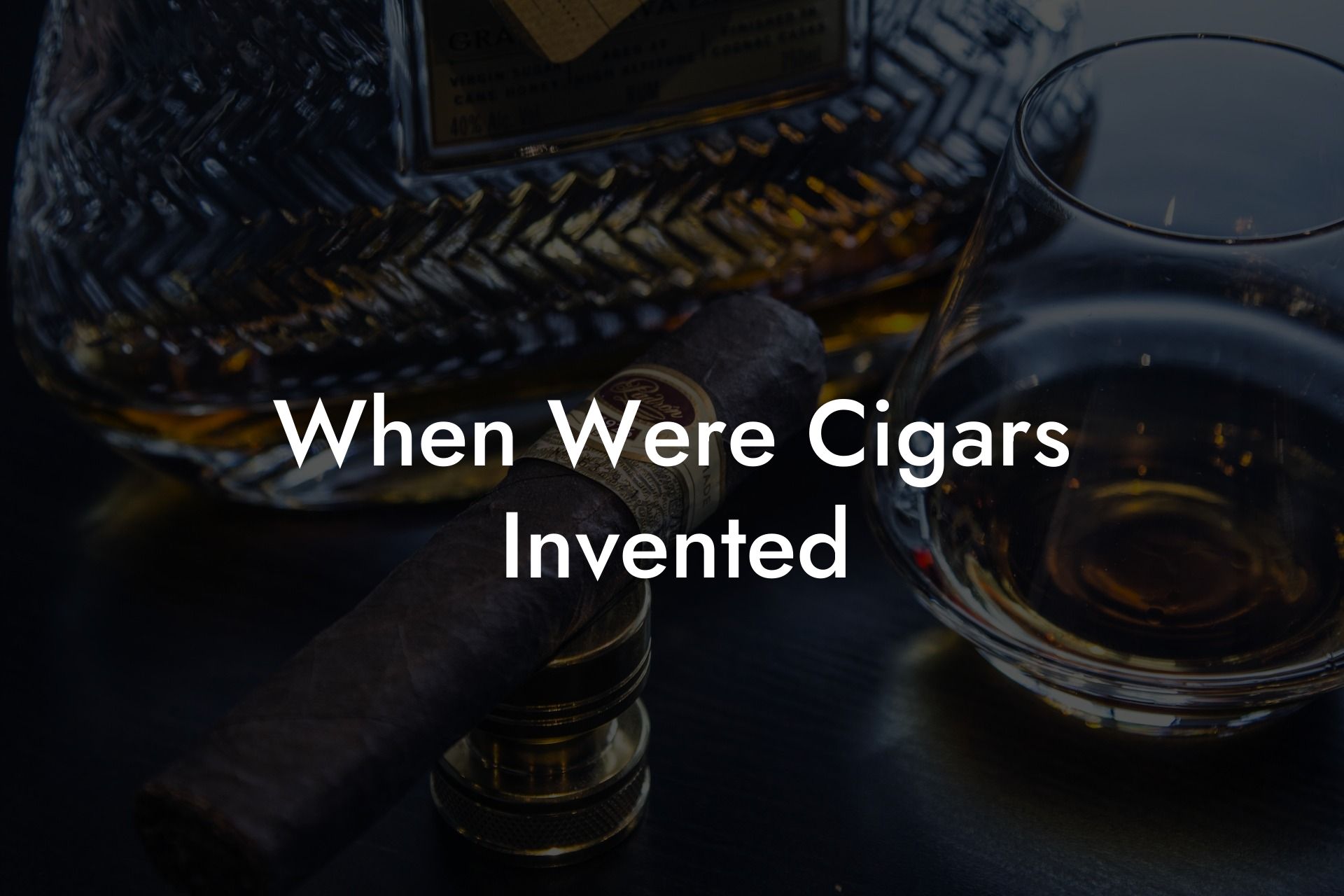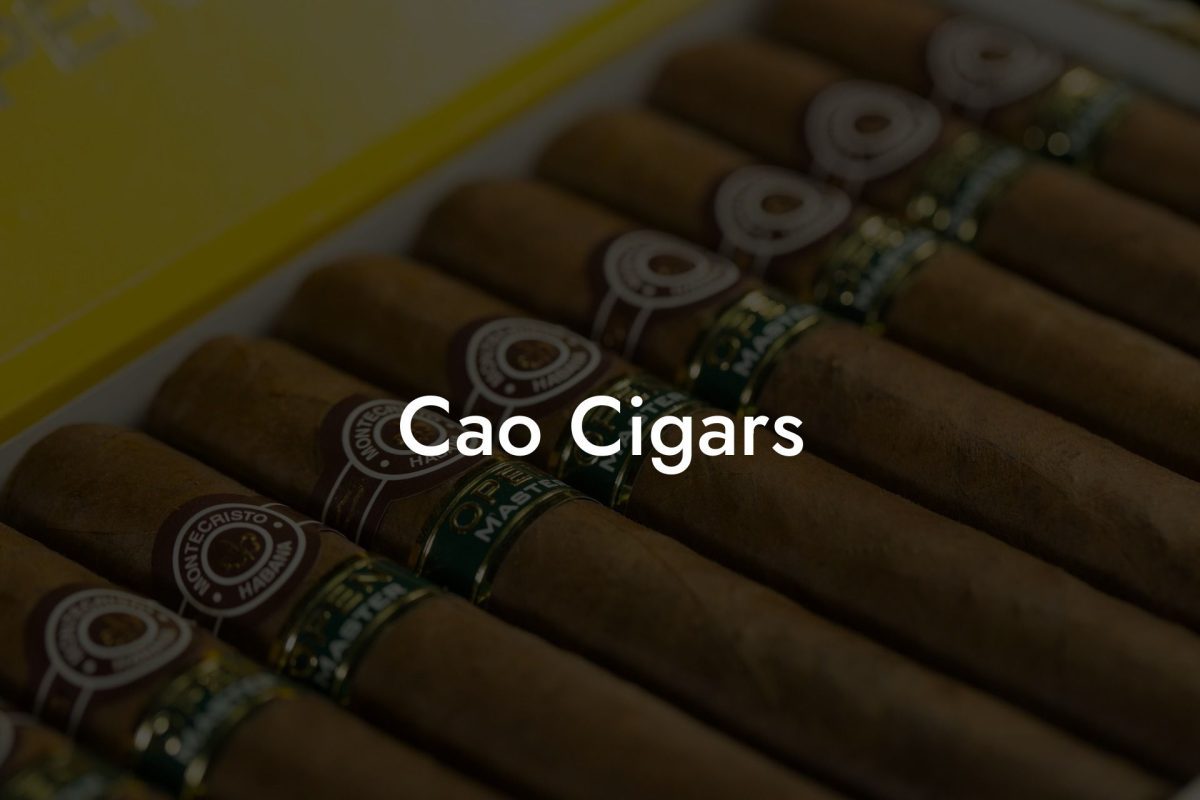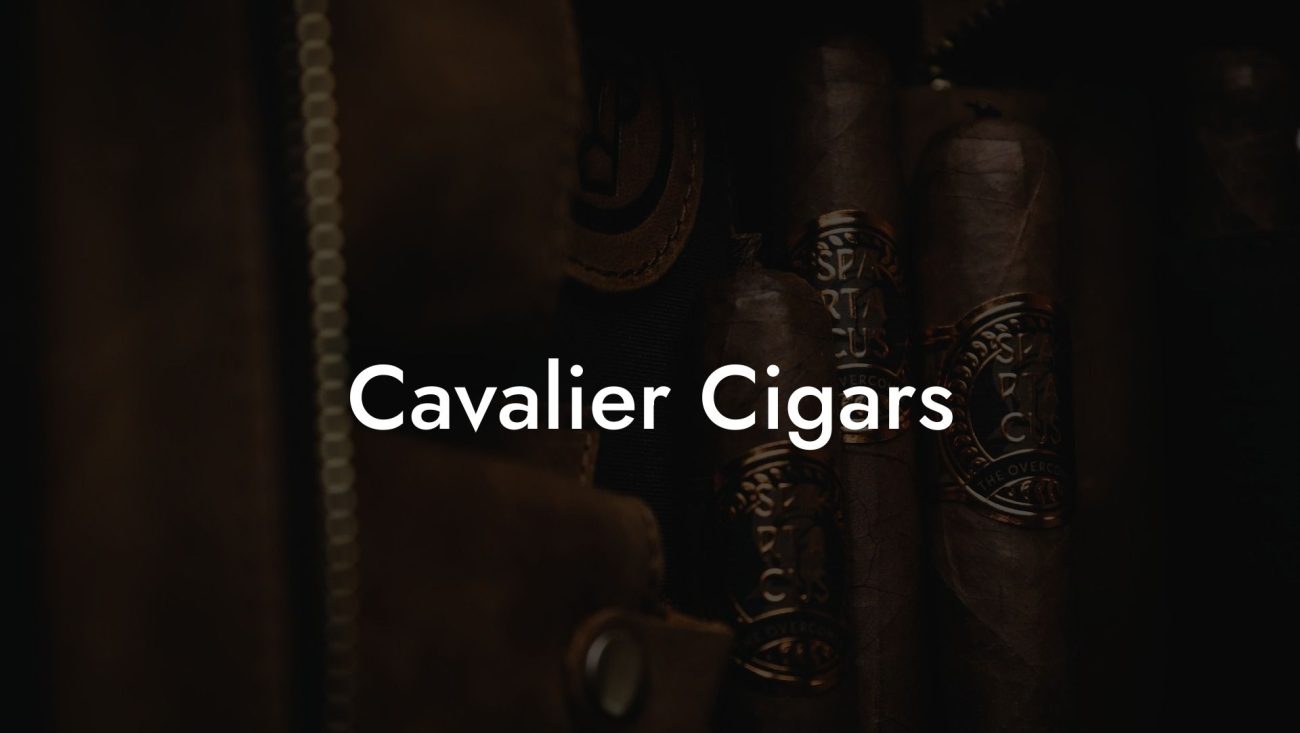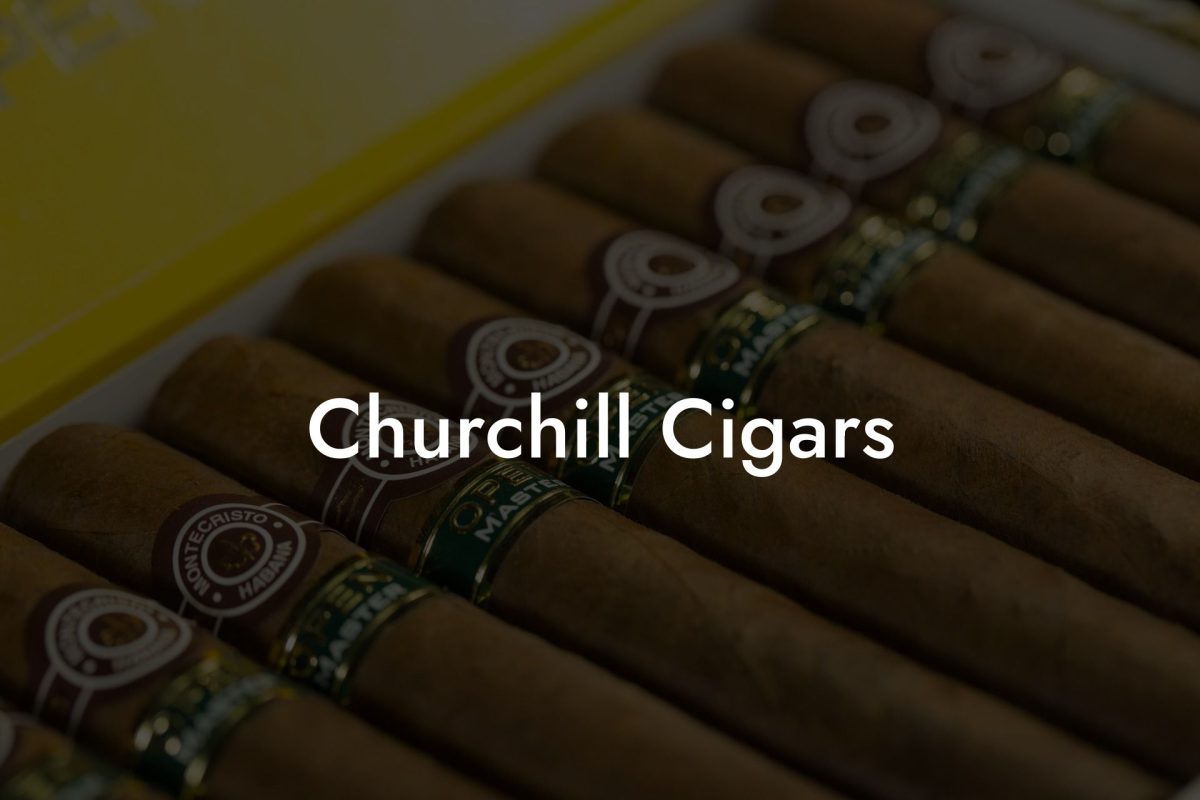Who knew that a simple stick of tobacco wrapped in paper could spark a cultural revolution, spark heated debates, and even infiltrate the most unexpected corners of Gen-Z humor? The saga of cigars is a wild ride, one that begins in ancient times, winds through the corridors of European exploration, and eventually lands in the hands of modern trendsetters. Grab your favorite beverage and settle in, because we’re about to dive headfirst into the fascinating, multifaceted, and sometimes downright quirky history of cigars.
When Were Cigars Invented Table of Contents
The Humble Beginnings: From Sacred Rituals to Everyday Indulgence
Charting New Worlds: The European Encounter with Tobacco
The Birth of the Cigar: A Revolutionary Twist on Tradition
Cuba: The Cigar Capital and the Perfect Roll
Industrial Revolution: Mechanization Meets Craftsmanship
The Rise of the Cigar in Pop Culture
Innovations in Cigar Making: Blending Tradition with Modern Techniques
The Science Behind the Smoke: Tobacco Cultivation and Cigar Production
Global Impact: How Cigars Shaped Economies and Cultures
Modern Cigar Culture: Gen-Z, Millennials, and the New Wave of Connoisseurs
Decoding Cigar Jargon: A Quick Guide for the Uninitiated
Resources and Community Support: Your Next Steps
Cigars in the 21st Century: Where History Meets the Future
FAQ: Your Questions on the Invention and Evolution of Cigars Answered
Your Journey into the World of Cigars: Embrace the Legacy and Forge New Traditions
The Humble Beginnings: From Sacred Rituals to Everyday Indulgence
Long before cigars became the symbol of sophistication and leisure, the indigenous peoples of the Americas used tobacco in ceremonial rituals that transcended the mundane. Archaeological evidence suggests that ancient tribes in regions now known as Mexico, Central America, and the Caribbean were the first to harness the power of tobacco. These early practitioners believed tobacco was a sacred herb, essential for religious ceremonies and spiritual communication.
For these indigenous cultures, tobacco was far more than just a means to get high, it was a tool of ritualistic importance. The practice of smoking dried tobacco leaves was deeply integrated into the fabric of their society and was used to connect with the divine, heal illnesses, and even settle disputes. As such, the art and science of tobacco consumption were passed down through generations, setting the stage for what would eventually become the cigar phenomenon.
The word “cigar” itself, however, wouldn’t come into existence until much later. Early tobacco users simply plucked, crushed, and sometimes even chewed tobacco leaves. It wasn’t until the European explorers stumbled upon these practices that the concept began to evolve, and eventually, be industrialized, into the cigar culture we know today.
Charting New Worlds: The European Encounter with Tobacco
Everything changed in 1492, when Christopher Columbus (and his crew) made contact with the New World. They were introduced to tobacco by the indigenous peoples, who unwittingly shared the secrets of a plant that would soon change the global landscape. Early European explorers were not only fascinated by tobacco’s intoxicating aroma and ritualistic significance but also by its potential as a trade commodity. Thus, began the transatlantic journey of tobacco from a sacred herb to a commodity in the European marketplace.
At first, European adoption of tobacco was sporadic and met with mixed reactions. Some champions of the new world saw tobacco as a miracle cure for various ailments, while others dismissed it as an exotic folly. However, as the practice of smoking spread, so did the popularity of tobacco. Initially, cigarettes and pipes became the primary methods of consumption, with cigars emerging later as a natural evolution of tobacco use.
Interestingly, early European records reveal that tobacco was introduced not only as a recreational product but also as medicine. Alchemists and doctors of the Renaissance period gifted tobacco a reputation as a panacea, capable of curing everything from toothaches to headaches. Though modern science would eventually debunk many of these claims, the early medicinal mystique of tobacco contributed to its rising allure and set the stage for the idea of a specially rolled form, a precursor to what we now recognize as the cigar.
The Birth of the Cigar: A Revolutionary Twist on Tradition
As tobacco became more entrenched in European culture during the 16th and 17th centuries, innovators began to experiment with its form and presentation. The idea of winding tobacco into a neat, portable bundle wasn’t purely accidental; it was a calculated shift designed to improve the smoking experience. Early prototypes of the cigar were essentially hand-rolled bundles of cured tobacco leaves that offered a more refined method of consumption compared to rough-hewn pipes.
This moment was a game-changer. The cigar allowed for an even burn and a more potent flavor profile, attributes that quickly captured the imagination of the aristocracy and the burgeoning middle class. The wrapping of tobacco in its own leaf not only enhanced the taste but also helped preserve the tobacco’s natural oils and aromas, leading to a smoother, more satisfying smoking ritual. This innovative twist marked the definitive moment when “When Were Cigars Invented?” became not just a question, but the start of a long and vibrant history intertwined with luxury, rebellion, and social status.
Historians today credit the development of the modern cigar to a series of ingenious adaptations made by cigar makers in regions like Cuba, which would forever cement the island’s reputation as the spiritual home of cigar craftsmanship. These pioneers took the simple idea of rolling tobacco and transformed it into an art form, using meticulous techniques passed down through generations.
Cuba: The Cigar Capital and the Perfect Roll
No discussion about cigars is complete without mentioning Cuba. Often hailed as the cigar capital of the world, Cuba’s cigar industry began to flourish in the 18th century when Spanish colonists recognized the ideal climate and soil conditions for growing high-quality tobacco. Over time, Cuban cigars earned global acclaim for their rich flavor, impeccable construction, and consistent quality.
The evolution of Cuban cigars is as layered and complex as the tobacco they are made from. As the art of cigar making developed, local artisans refined techniques that balanced the rustic traditions of indigenous tobacco use with European craftsmanship. The intricate rolling process involved selecting the right blend of tobacco leaves, aging them to perfection, and finally rolling them by hand into cigars that were as much a testament to art as they were a source of indulgence.
While the cigar industry in Cuba faced numerous challenges, ranging from political upheavals to economic sanctions, the passion and precision of its cigar rollers never waned. Today, their legacy continues to influence global cigar culture, captivating enthusiasts from every generation, including a surprising number of millennial and Gen-Z aficionados who appreciate the story behind every puff.
Industrial Revolution: Mechanization Meets Craftsmanship
As with many traditional crafts, the advent of the Industrial Revolution brought both challenges and opportunities to the world of cigars. On one hand, mechanization threatened to undermine the value of the artisanal hand-rolled cigar. On the other hand, it made cigars more widely accessible to the masses by increasing production efficiency.
In the 19th century, various technological advancements revolutionized the manufacturing process of cigars. Machines capable of rolling cigars were introduced, rapidly scaling up production and reducing costs. However, many aficionados, and even some cigar connoisseurs, firmly believed that the soul of a cigar lay in the meticulous handcrafting process.
This tension between industrial efficiency and artisanal integrity is a recurring theme in the cigar world. While mass production allowed cigars to become a more common luxury, it also sparked movements among aficionados who championed “slow craft” and the importance of preserving traditional techniques. Today, many premium cigar brands emphasize hand-rolled production methods as a mark of quality, bridging the gap between old-world traditions and modern production demands.
The Rise of the Cigar in Pop Culture
Step aside, Hollywood, cigars have always been the ultimate symbol of cool. From notorious mob bosses in classic films to rugged adventurers in modern indie flicks, cigars have long been associated with power, mystery, and a hint of rebellious charm. This cultural symbolism has only amplified the allure of cigars through the decades.
The post-war era saw an explosion of cigar popularity in the United States, where cigars became synonymous with success and celebration. Iconic images of statesmen, celebrities, and even anti-establishment figures lighting up a cigar expressed a statement of defiance and sophistication. There’s something irresistibly cinematic about a slow-burning cigar paired with a smoky jazz bar or a gritty political drama.
More recently, Gen-Z and millennial audiences have discovered and reinvented the cigar experience. Social media platforms have given rise to modern cigar bloggers, influencers, and micro-celebrities who share reviews, tutorials, and the inside scoop on the latest trends in cigar culture. This digital renaissance has infused a youthful energy into a centuries-old tradition, making cigars a topic of both historical intrigue and contemporary cool.
Today, cigars are no longer confined to the musty backrooms of exclusive clubs or the smoke-filled offices of bygone eras. Instead, they have found a new home in urban lounges, rooftop bars, and even cozy living rooms where the appeal lies in the ritual of curated experiences, one that appeals to a generation that values authenticity and storytelling.
Innovations in Cigar Making: Blending Tradition with Modern Techniques
The art of cigar making is a dynamic blend of time-honored practices and modern innovations. As consumer preferences continue to evolve, cigar manufacturers have had to adapt, infusing new life into a centuries-old craft. For instance, the development of climate-controlled aging rooms and precision cutting tools has refined the production process without sacrificing the intrinsic charm of hand-rolled cigars.
One of the most intriguing innovations is the introduction of boutique cigar brands that experiment with various tobacco blends, fermentation processes, and even aging techniques. These brands are not just about producing cigars, they’re about storytelling. Every blend is carefully curated to reflect a unique narrative, sometimes influenced by regional heritage, innovative experimentation, or even the personal journey of the master blender.
Another significant trend is the rise of limited-edition cigars. Much like a rare vinyl record or an exclusive sneaker drop, these cigars offer collectors and enthusiasts a sense of exclusivity. The limited runs combine traditional craftsmanship with modern marketing savvy, tapping into a fierce desire for individuality and authenticity that resonates powerfully with millennial and Gen-Z consumers.
Modern cigar aficionados are also embracing technology, using online platforms and mobile apps to learn about cigar ratings, review blends, and even track harvest cycles. Websites dedicated to cigar culture offer blogs, podcasts, and live-streamed events where enthusiasts can interact directly with master rollers and industry veterans. This digital blending of old and new ensures that cigar culture remains both a historical legacy and a living, evolving art form.
The Science Behind the Smoke: Tobacco Cultivation and Cigar Production
Understanding the cigar’s journey from seed to smoke involves delving into the intricacies of tobacco cultivation, fermentation, and rolling. Tobacco plants are grown under very specific conditions to ensure the leaves achieve the desired thickness, flavor, and durability. Factors such as soil composition, climate, and even the time of year play a critical role in the quality of the harvest.
Once harvested, the tobacco leaves undergo a meticulous curing process. There are several methods, air-cured, fire-cured, and sun-cured, with each technique imparting distinct flavors and aromas to the final product. The curing process not only preserves the leaves but also helps develop their unique character, setting the foundation for the cigar's flavor profile.
The next critical step is fermentation. During fermentation, the tobacco leaves are stored in controlled environments where natural enzymes break down harsh compounds and enhance the tobacco's inherent sweetness and complexity. This process can take several weeks or even months, and each blend requires a precise balance to ensure the final cigar has the perfect harmony of flavors.
Following fermentation, the leaves are sorted by quality, color, and texture. Expert torcedores (cigar rollers) select the finest leaves for the wrapper, the outermost layer of the cigar that is visible and integral to its flavor. The filler, which is a blend of various tobacco types, is chosen to create a balanced smoking experience. The binder leaf holds the filler together, while the wrapper not only contributes to the flavor but also provides an attractive finish.
This intricate process is a testament to the art and science of cigar production, a process that seamlessly integrates tradition with meticulous craftsmanship. It’s no wonder that every puff tells a story, a narrative forged deep in the soil, nurtured by time, and perfected by human ingenuity.
Global Impact: How Cigars Shaped Economies and Cultures
The impact of cigars extends far beyond the smoky confines of a lounge. Historically, cigars played a pivotal role in global trade and economics. In the 18th and 19th centuries, tobacco was one of the most sought-after commodities in international trade, with European empires vying for control over the rich tobacco-producing regions of the New World.
The lucrative nature of the tobacco trade led to the establishment of sophisticated plantations and spurred innovations in logistics, storage, and quality control. Countries like Cuba, the Dominican Republic, and Nicaragua built entire economies around cigar production, and the art of cigar rolling became an iconic cultural symbol.
Beyond economics, cigars have influenced social customs and rituals around the globe. In many cultures, a cigar is not merely a product, it is an experience. Whether celebrating a major life event, marking the end of a significant achievement, or simply enjoying a calm moment of reflection, cigars have long been intertwined with moments of celebration, contemplation, and connection.
Moreover, the cultural significance of cigars transcends geographic boundaries, merging with local traditions in unexpected ways. Today, as global travel becomes more accessible, young enthusiasts are discovering regional cigar festivals, tasting events, and pop-up lounges that celebrate both the history and the modern resurgence of cigar culture. This newfound appreciation is particularly resonant with Gen-Z and millennials, who see cigars as not only a nod to a storied past but also as a platform for socializing, networking, and creative expression.
Modern Cigar Culture: Gen-Z, Millennials, and the New Wave of Connoisseurs
If you think cigars are solely the realm of silver-haired moguls and vintage movie stars, think again! The digital age has brought a surprising twist to cigar culture. Today, a vibrant community of young, socially engaged individuals is reinterpreting and reinvigorating the cigar experience. For many Gen-Z and millennial enthusiasts, cigars are not just about refined relaxation, they’re about identity, creativity, and a rebellion against fast-paced consumerism.
Modern cigar culture embraces social media with open arms. Platforms like Instagram, TikTok, and Twitter are teeming with vibrant visuals, reviews, and playful banter about everything from the best cigar pairings with craft cocktails to humorous “cigar fails.” Influencers and aficionados alike are sharing unfiltered insights into the world of premium cigars, transforming this age-old habit into a modern art form.
What’s behind this newfound passion? For starters, young cigar enthusiasts appreciate the ritualistic aspect of smoking, a slow, deliberate process in contrast to the instant gratification of everyday life. The careful selection of a cigar, its dedicated storage in a humidor, and finally, the artful lighting and enjoying of the smoke become acts of mindfulness and self-care. In a world overwhelmed by digital noise and rapid consumption, the cigar ritual offers a space to pause, reflect, and savor the moment.
Furthermore, many modern smokers are drawn to the authenticity and craftsmanship behind artisanal cigars. In an era of mass production and fleeting trends, the handcrafted nature of premium cigars represents a profound connection to history, culture, and quality. It’s a statement, a celebration of heritage and the enduring value of taking your time to enjoy something truly special.
Decoding Cigar Jargon: A Quick Guide for the Uninitiated
For anyone newly stepping into the smoke ring, the world of cigars can seem as intricate and layered as the flavor profiles of the cigars themselves. Let’s break down some of the most common terms so you can impress your friends at your next cigar tasting:
- Wrapper: The outer, most visible leaf of a cigar, responsible for much of its flavor and appearance.
- Binder: The leaf that holds the filler together, ensuring a uniform burn.
- Filler: A blend of various tobacco leaves that comprise the bulk of the cigar and determine its complexity.
- Humidor: A specialized storage box or room designed to maintain the ideal humidity level, preserving your cigars in perfect condition.
- Vitola: The term used to describe the size and shape of a cigar, which influences burn rate and flavor intensity.
- Retrohale: The technique of exhaling smoke through the nose to experience the cigar’s complex aroma.
This lexicon is just the tip of the iceberg. As you become more immersed in cigar culture, you’ll discover an entire vocabulary that mirrors the depth and passion inherent in this age-old craft. And remember, even if you mix up the terms, the journey is all about enjoying the ride, and the smoke!
Resources and Community Support: Your Next Steps
For young enthusiasts looking to deepen their understanding of cigar history and culture, there’s a wealth of resources waiting to be explored. Online forums, social media groups, and dedicated blogs offer a treasure trove of information, from the inside scoop on new releases to detailed discussions on the nuances of tobacco cultivation and fermentation. Don’t shy away from attending local cigar events, tasting sessions, or even virtual meet-ups that connect aficionados from around the globe.
Books, documentaries, and podcasts are also excellent avenues for digging into the rich history of cigars. Many of these resources provide not only the facts but also fascinating anecdotes and behind-the-scenes stories that captivate both seasoned connoisseurs and newcomers alike.
If you're wondering where to begin, consider checking out resources such as:
- Cigar Aficionado Magazine: A leading source of news, reviews, and features on the latest in cigar culture and lifestyle.
- The Cigar Authority: An online portal that offers comprehensive guides and expert insights into the world of cigars.
- Cigar blogs and YouTube channels: Numerous content creators specialize in cigar reviews, history deep-dives, and entertaining unravelings of trends in the cigar world.
Engage with local cigar lounges, clubs, and events to not only taste premium cigars but also to meet fellow enthusiasts who share your passion for history, innovation, and the simple pleasure of a good smoke. The community is vibrant, welcoming, and always eager to share their insights and experiences.
By immersing yourself in the resource-rich world of cigars, you’re joining a global movement that celebrates tradition, innovation, and the art of taking time to enjoy life’s finer moments.
Cigars in the 21st Century: Where History Meets the Future
The narrative of cigars continues to evolve in the digital age. With technological advances and a new generation of curious minds, the future of cigars looks as vibrant as ever. Manufacturers are experimenting with eco-friendly production methods, novel tobacco blends, and sustainable farming practices. Cutting-edge research into alternative curing techniques and precision rolling is reshaping the industry while preserving its storied traditions.
Innovative marketing strategies have also helped bring cigars into the spotlight for younger audiences. From viral social media campaigns and interactive digital content to immersive experiences at upscale events, cigars are no longer just a nod to the past, they’re a dynamic part of modern lifestyle culture. Tech-savvy consumers are eager to explore behind-the-scenes looks at how cigars are made, engaging with content that demystifies the art of tobacco cultivation and hand-rolling.
The future may well see a fusion of tradition and technology, where smart humidors, mobile apps for tracking cigar aging, and even virtual reality experiences of iconic cigar factories become the norm. Whether you’re a curious newcomer or a lifelong enthusiast, the burgeoning landscape of modern cigar culture promises exciting developments that honor the past while embracing the possibilities of tomorrow.
FAQ: Your Questions on the Invention and Evolution of Cigars Answered
If you’ve ever found yourself wondering about the origins and evolution of cigars, you’re not alone. Below are some of the most common questions, answered in a way that blends history, humor, and modern insight.
1. When were cigars invented?
Cigars, as we recognize them today, a bundle of tobacco leaves carefully wrapped and aged, began to take shape in the 16th century, emerging from indigenous tobacco traditions following European exploration of the New World.
2. What is the origin of tobacco use?
Tobacco use traces back thousands of years to indigenous cultures in the Americas, where it was revered for its spiritual and medicinal properties long before European contact.
3. How did cigars become associated with luxury and status?
As European societies began to incorporate tobacco into their lifestyle during the Renaissance, the hand-crafted nature of cigars and their association with intellectual and celebratory pursuits quickly elevated them as a symbol of sophistication and status.
4. Why are Cuban cigars considered the best?
Cuban cigars benefit from a combination of ideal climate conditions, centuries-old expertise, and artisanal hand-rolling techniques that collectively produce unparalleled flavor and a premium smoking experience.
5. How has modern technology influenced cigar production?
The integration of modern technology, such as climate-controlled aging facilities, precision rolling tools, and online platforms for reviews, has streamlined production and connected a new generation of cigar enthusiasts with the historical art of cigar making.
6. Are cigars still relevant in today’s fast-paced digital world?
Absolutely! In today’s world, cigars offer a deliberate, mindful counterpoint to rapid digital consumption, a ritual that many young consumers find both relaxing and enriching.
7. What makes a cigar “premium”?
A premium cigar is typically characterized by its high-quality tobacco, the artisan skill of its hand-rolling process, meticulous fermentation and aging, and a flavor profile that reflects centuries of tradition and innovation.
8. Can I start enjoying cigars even if I’m new to the culture?
Definitely. There’s a vibrant community and ample resources available, from expert reviews and online tutorials to local tasting events, that help newcomers navigate the rich world of cigars with confidence and enjoyment.
Your Journey into the World of Cigars: Embrace the Legacy and Forge New Traditions
The history of cigars is not just a chronicle of tobacco and techniques, it’s a tapestry woven with stories of cultural exchange, craftsmanship, and the timeless allure of a well-earned pause in the midst of life’s chaos. Whether you’re a seasoned aficionado or a curious newcomer, every cigar tells a story that spans continents, centuries, and countless hands that have rolled, aged, and savored it.
For a generation that craves authenticity and genuine experiences, the cigar represents more than just a smoke. It’s a break from relentless digital pulses, a tactile connection to history, and a way to celebrate excellence in the form of a handcrafted indulgence. Engage with the rich world of premium cigars by seeking out local lounges, joining online communities, or simply exploring new blends and flavors on your own.
Let your journey into cigar culture be an exploration of not only flavor and tradition but also of the stories and innovation that have transformed an ancient ritual into a living art form. Each cigar, with its complex layers and nuanced aromas, invites you to slow down and savor the moment, a luxury that stands out in today’s fast-paced world.
So, whether you find solace in a quiet evening with a well-rolled cigar or share laughs with friends over a new discovery at a tasting event, remember: you’re not just smoking a cigar. You’re partaking in a living legacy, one that bridges the gap between the past and the present, tradition and innovation, seriousness and a bit of well-deserved irreverence.
Step forward confidently into this fascinating world, where each puff is a passage through time, and every taste is a tribute to a heritage that refuses to fade. Your exploration of cigar history is a journey of flavor, culture, and personal discovery, one that invites you to rewrite the narrative as part of a vibrant, ever-evolving tradition.













